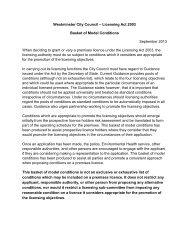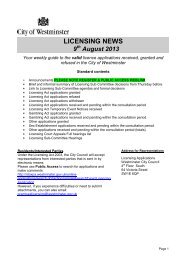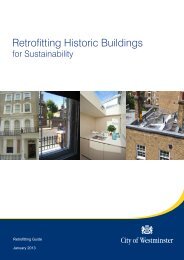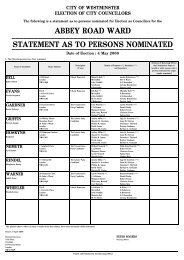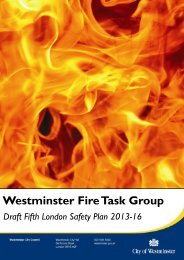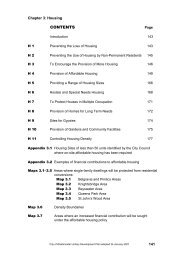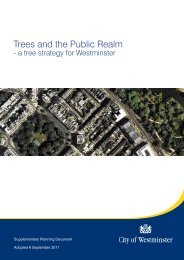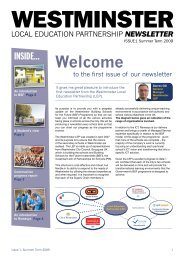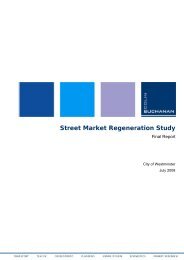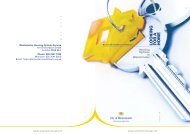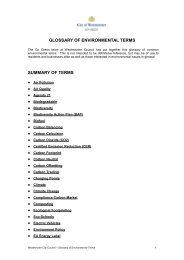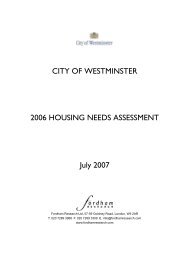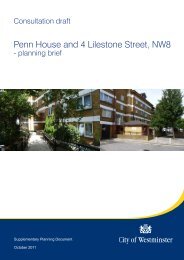Amended guidance issued under section 182 of the Licensing Act ...
Amended guidance issued under section 182 of the Licensing Act ...
Amended guidance issued under section 182 of the Licensing Act ...
You also want an ePaper? Increase the reach of your titles
YUMPU automatically turns print PDFs into web optimized ePapers that Google loves.
6. Club premises certificates6.1 This Chapter covers <strong>the</strong> administration <strong>of</strong> <strong>the</strong> processes for issuing, varying, and reviewingclub premises certificates and o<strong>the</strong>r associated procedures.GENERAL6.2 Clubs are organisations where members have joined toge<strong>the</strong>r for particular social, sportingor political purposes. They may <strong>the</strong>n combine to buy alcohol in bulk as members <strong>of</strong> <strong>the</strong>organisation to supply in <strong>the</strong> club.6.3 Technically <strong>the</strong> club only sells alcohol by retail at such premises to guests. Where memberspurchase alcohol, <strong>the</strong>re is no sale (as <strong>the</strong> member owns part <strong>of</strong> <strong>the</strong> alcohol stock) and <strong>the</strong>money passing across <strong>the</strong> bar is merely a mechanism to preserve equity between memberswhere one may consume more than ano<strong>the</strong>r.6.4 Only ‘qualifying’ clubs may hold club premises certificates. In order to be a qualifying club, aclub must have at least 25 members and meet <strong>the</strong> conditions set out below. The grant <strong>of</strong>a club premises certificate means that a qualifying club is entitled to certain benefits.These include:• <strong>the</strong> authority to supply alcohol to members and sell it to guests on <strong>the</strong> premises towhich <strong>the</strong> certificate relates without <strong>the</strong> need for any member or employee to hold apersonal licence;• more limited rights <strong>of</strong> entry for <strong>the</strong> police and authorised persons because <strong>the</strong> premises areconsidered private and not generally open to <strong>the</strong> public;• exemption from police powers <strong>of</strong> instant closure on grounds <strong>of</strong> disorder and noise nuisance(except when being used <strong>under</strong> <strong>the</strong> authority <strong>of</strong> a temporary event notice or premiseslicence) because <strong>the</strong>y operate <strong>under</strong> <strong>the</strong>ir codes <strong>of</strong> discipline and rules; and• exemption from orders <strong>of</strong> <strong>the</strong> magistrates’ court for <strong>the</strong> closure <strong>of</strong> all licensed premises inan area when disorder is happening or expected.6.5 Qualifying clubs should not be confused with proprietary clubs, which are clubs runcommercially by individuals, partnerships or businesses for pr<strong>of</strong>it. These require a premiseslicence and are not qualifying clubs.6.6 A qualifying club will be permitted <strong>under</strong> <strong>the</strong> terms <strong>of</strong> a club premises certificate to sell andsupply alcohol to its members and <strong>the</strong>ir guests only. Instant membership is not permittedand members must wait at least two days between <strong>the</strong>ir application and <strong>the</strong>ir admission to<strong>the</strong> club. A qualifying club may choose to apply for a premises licence if it decides that itwishes to <strong>of</strong>fer its facilities commercially for use by <strong>the</strong> general public, including <strong>the</strong> sale<strong>of</strong> alcohol to <strong>the</strong>m. However, an individual on behalf <strong>of</strong> a club may give temporary eventnotices. See Chapter 7.38 AMENDED GUIDANCE ISSUED UNDER SECTION <strong>182</strong> OF THE LICENSING ACT 2003



